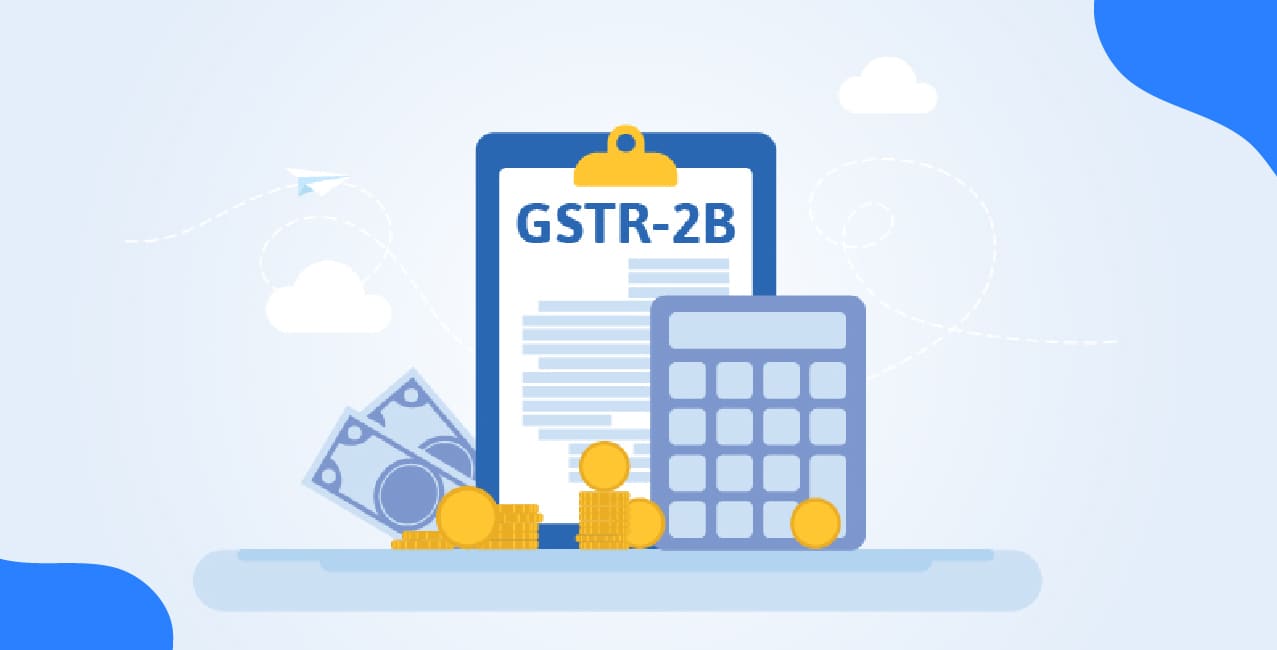GST Registration for Proprietorship: Complete Guide & Steps

Check Your Loan Eligibility Now
By continuing, you agree to LoansJagat's Credit Report Terms of Use, Terms and Conditions, Privacy Policy, and authorize contact via Call, SMS, Email, or WhatsApp
Key Takeaways
- GST registration gives a proprietorship legal recognition.
- It is required if the business turnover exceeds the prescribed limit or if it trades across states.
- Registering also helps the business save on taxes by claiming input tax credit.
GST registration is required for many small businesses in India. It ensures compliance with tax laws. It gives the business legal recognition under the Goods and Services Tax framework.
Take the example of Rohan, who runs a small garment shop in Delhi. His sales grew and crossed the turnover threshold. He needed GST registration for his proprietorship to continue operating legally. By registering, Rohan complied with the law. He also gained access to input tax credits. This thing reduced his overall tax liability and improved his cash flow.
This blog explores everything proprietors need to know about GST registration.
GST Registration for Proprietorship
Obtaining GST registration for proprietorship is a crucial step. It is for compliance with the Goods and Services Tax framework. It not only formalises the business but also provides benefits such as input tax credits. Below are the essential aspects every proprietor should understand.
Threshold Limit
A sole proprietorship must get GST registration if its yearly turnover is over ₹4,000,000. For service providers, the limit is ₹2,000,000.
Interstate Business
If a business trades interstate, GST registration is compulsory, no matter the turnover.
Voluntary Registration
Proprietorships can also choose to register for GST voluntarily. This helps them claim input tax credits and gain more trust in the market.
Registering on time keeps the business legal, makes it stronger. It opens up chances for growth and credibility.
Eligibility Criteria for GST Registration in Sole Proprietorships
For a sole proprietorship, getting GST registration depends on certain rules. These rules make sure that only businesses that need GST have to register. It keeps their operations legal and organised.
Annual Turnover
GST registration for proprietorship becomes mandatory. If the annual turnover exceeds ₹40,00,000 for goods or ₹20,00,000 for services.
Type of Business
Eligibility also depends on the type of business. Businesses doing interstate trade, e-commerce, or using the reverse charge system must register.
Input Tax Credits
Proprietors aiming to claim input tax credits on purchases or business expenses. It is required to register under GST.
Casual Taxable Persons
Individuals carrying out temporary business activities in India must obtain GST registration. Adhering to these criteria helps proprietors avoid penalties. It also allows them to maintain credibility and ensures smooth business operations. Timely GST registration for a proprietorship prevents legal complications. In addition, it provides financial and reputational advantages.
When Should a Proprietorship Firm Obtain GST Registration?
The timing of GST registration for proprietorship is very important. Registering at the right time keeps the business running smoothly and gives access to GST benefits. A firm should get GST registration for proprietorship in the following cases:
Exceeding Turnover Thresholds
Registration is required when the yearly turnover exceeds ₹4,000,000 for goods. For services, the limit is ₹2,000,000.
Interstate Supply
Firms engaged in the interstate supply of goods or services must obtain GST registration. It is for proprietorship, regardless of turnover.
E-commerce Operations
Any business selling through e-commerce platforms is required to secure GST registration.
Voluntary Registration
Proprietors may also opt for voluntary registration to claim input tax credits.
Timely GST registration for proprietorship fulfils legal obligations. It also improves business credibility and provides long-term financial benefits.
Benefits of GST Registration for Proprietorship
Securing GST registration for proprietorship gives businesses more than just legal recognition. It strengthens credibility, supports growth. It also ensures smooth operations. Below are the major benefits every proprietor should know.
Legitimacy and Compliance
GST registration for proprietorship formalises the business. It allows it to operate within the legal framework. It ensures tax compliance while building trust among customers, suppliers, and business partners.
Input Tax Credit (ITC)
With registration, businesses can claim Input Tax Credit. This lets proprietors reduce their GST on sales by the GST they paid on purchases. It reduces the overall tax burden and improves cash flow.
Interstate Transactions
For interstate trade or service supply, registration is mandatory. It allows goods and services to move smoothly across states. It also removes the trouble of dealing with many state taxes.
Competitive Advantage
Registered businesses gain a clear edge in the market. GST registration for proprietorship allows access to government tenders. It widens market reach and enhances customer confidence.
GST registration helps proprietorship businesses follow the law. It also gives them the tools to grow and compete better in the market.
Application Procedure for GST Registration for Proprietorship
Applying for GST registration for proprietorship is a straightforward process. Below is the simplified procedure:
Step 1: Visit the GST Portal
Go to the official GST portal, open the registration section, and click on “New Registration.”
Step 2: Fill Out the Application Form
Complete Form GST REG-01 with details such as:
- Legal name of the proprietorship as per business documents
- PAN of the proprietor
- Valid email address and mobile number for verification
- State and district of the business location
- Business details, including commencement date and constitution
- Information of the authorised signatory (proprietor)
Step 3: Verify and Submit Application
Check all the details carefully and submit the form. Use a Class 3 Digital Signature Certificate, if required, to sign the application.
Step 4: ARN Generation and Acknowledgement
After submission, the system generates an Application Reference Number (ARN). Keep the acknowledgement receipt safe for tracking purposes.
Step 5: Verification by Authorities
The GST department reviews the application. And then it may request extra documents or conduct verification if needed.
Step 6: GST Registration Certificate
Once the application is approved, you will get your GST registration certificate. You can then download it from the GST portal.
By following these steps carefully, proprietors can obtain GST registration smoothly. It ensures their business remains compliant.
Bonus Tip: Keep all business invoices and financial records organised before applying for GST registration. This speeds up the process and helps avoid errors.
Conclusion
Getting GST registration for a proprietorship gives the business legal recognition and ensures tax compliance. It builds trust with customers and business partners. By registering on time, proprietors avoid penalties and can claim input tax credits. GST registration also opens doors to larger market opportunities. It helps sole proprietorships operate with credibility, grow confidently, and remain competitive in the formal economy.
FAQ’s
Who needs GST registration for a proprietorship?
GST registration is not mandatory for all proprietorships. It is required if your annual turnover exceeds ₹40 lakhs for goods or ₹20 lakhs for services. It is also compulsory for businesses involved in interstate trade or selling through e-commerce platforms.
How can a proprietor register for GST?
Yes, a proprietor can easily register online through the official GST portal using Form GST REG-01.
What documents are required?
You need PAN, Aadhaar, address proof, bank details, and a photo of the proprietor.
Is a proprietor eligible to claim Input Tax Credit (ITC)?
Yes, proprietors can claim ITC on business purchases to offset their GST liability on sales.
How long does it take to get the certificate?
Usually 7–10 working days. It may take longer if extra details are requested.
Other Related Pages | |||
About the author

LoansJagat Team
Contributor‘Simplify Finance for Everyone.’ This is the common goal of our team, as we try to explain any topic with relatable examples. From personal to business finance, managing EMIs to becoming debt-free, we do extensive research on each and every parameter, so you don’t have to. Scroll up and have a look at what 15+ years of experience in the BFSI sector looks like.
Subscribe Now
Related Blog Post
Recent Blogs
All Topics
Contents
Quick Apply Loan
Consolidate your debts into one easy EMI.
Takes less than 2 minutes. No paperwork.
10 Lakhs+
Trusted Customers
2000 Cr+
Loans Disbursed
4.7/5
Google Reviews
20+
Banks & NBFCs Offers
Other services mentioned in this article








